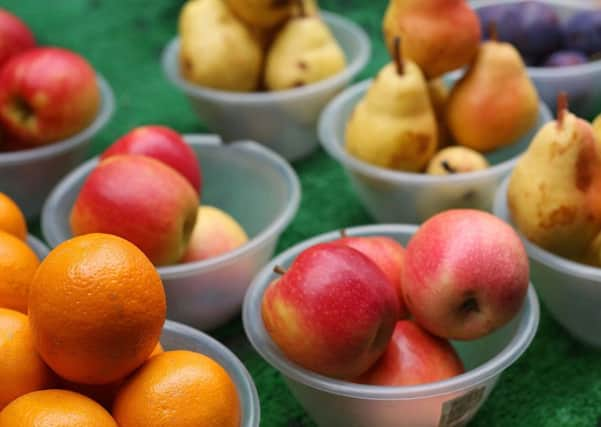Brits will be hit hardest by a 'food Brexit'


And the poor will be hit hardest by leaving the EU because prices will soar as food supply drops as the government negotiates new trade deals, leading food experts say.
Food policy specialists predict that a ‘food Brexit’ will see costs for imported fruit, vegetables, meat and fish hike up to 22 per cent if Theresa May gets her ‘hard’ Brexit deal.
Advertisement
Hide AdAdvertisement
Hide AdProfessors from the universities of Sussex, London and Cardiff say their report is a “wake up call” and claim shoppers have no idea of the “enormous” impact leaving will have on food.
But they say even if Britain opts for a ‘soft’ Brexit, food supply, agriculture, prices and even the environment will be adversely affected.
Professor Tim Lang of the University of London said: “UK food security and sustainability are now at stake.
“A food system which has an estimated three to five days of stocks cannot just walk away from the EU, which provides us with 31 per cent of our food.
Advertisement
Hide AdAdvertisement
Hide Ad“Anyone who thinks that this will be simple is ill-informed.”
Safety standards
Professor Erik Millstone of Sussex University said: “In the EU, UK consumers and public health have benefited from EU-wide safety standards, without which there will be a risk of the UK having less safe and nutritious products.”
The 86-page report, also is the first major review into what impact leaving Europe will have on British food and farming.
It suggests the UK is vulnerable and its self-sufficiency is in decline and warns food quality standards - currently set by the EU - could decline as the government tries to get a grip on negotiations.
Advertisement
Hide AdAdvertisement
Hide AdProfessor Terry Marsden of Cardiff University said: “The UK’s food system already faces unprecedented challenges on environment and jobs - we see real dangers that these are already being dislocated by Brexit uncertainties.”
Before the Brexit deadline in 20 months ministers will need to replace around 4,000 pieces of EU law relating to food and clarify the rules for food crossing borders, particularly between Ireland and Great Britain.
Subsidies required
Brexit secretary David Davis will also need to consider subsidies to replace the EU’s Common Agricultural Policy.
The report questions where where UK food will come from as only around 54-61 per cent is currently UK-sourced and says 35 per cent of labourers come from Europe, even more considering catering and horticulture.
Advertisement
Hide AdAdvertisement
Hide AdThe professors, who say the British food system will become “chaotic” urged the government to create a new statutory framework for British food and commit to the UN Sustainable Development Goals and the Paris climate agreement in any new food framework
They also believe a National Commission on Food and Agriculture should be established to provide oversight and review, and to be a source of advice trusted by the British public.
Professor Millstone said: “Since the Brexit referendum UK food and agricultural policy has been in chaos.
“Not only have ministers yet to develop a strategy or make decisions, they have not even grasped the issues about which urgent decisions are needed.
Advertisement
Hide AdAdvertisement
Hide Ad“Unless things change rapidly, and in line with our recommendations, the UK will not only have policy chaos, the food system itself will become increasingly chaotic.”
No emergency plans
Professor Lang said: “At least the UK entered World War Two with emergency plans.
“No-one has warned the public that a ‘Food Brexit’ carries real risks of disruption to sources, prices and quality.
“There is solid evidence about vulnerabilities ranging from diet-related ill-health to ecosystems stress.
Advertisement
Hide AdAdvertisement
Hide Ad“Food is the biggest slice of EU-related regulations and laws, yet so far the Government has only sketchily flagged a new Agriculture Act and Fisheries Act in the Queen’s Speech.
“British consumers spend £201 billion on food a year, with the entire food chain contributing about £110 billion gross value added (GVA). Of this, agriculture accounts for less than £9 billion GVA, and fisheries £0.7 billion GVA.
“The Government has provided next to no details on agriculture and fisheries, and there has been total silence on the rest of the food chain where most employment, value adding and consumer choice are made.
“With the Brexit deadline in 20 months, this is a serious policy failure on an unprecedented scale.
“Anyone would think they want a drop into the World Trade Organisation abyss.”
The study was published by the Science Policy Research Unit at the University of Sussex.